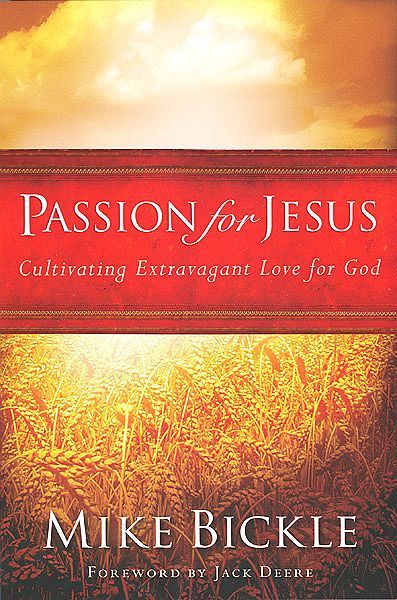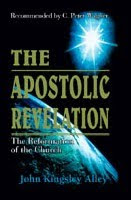Review: Passion for Jesus – Cultivating Extravagant Love for God
 At the core of human identity is what we desire. As the saying goes, “What the heart desires, the will chooses, and the mind justifies.” I think Cranmer said it, and it is true. I know it in myself; when I wrestle with who I am, I end up at questions of “What do I really love? What is my heart’s desire? What moves me at my deepest?”
At the core of human identity is what we desire. As the saying goes, “What the heart desires, the will chooses, and the mind justifies.” I think Cranmer said it, and it is true. I know it in myself; when I wrestle with who I am, I end up at questions of “What do I really love? What is my heart’s desire? What moves me at my deepest?”
It’s the same with church communities. We can talk about vision-casting and strategic planning and the rest of it, but 99% of the time a church’s problems come down to this question of passion. What moves us? What do we want? Whom do we desire?
To be frank, the honest answer for most churches is that we are enamoured with ourselves: our way of doing things, our past glories, our insecurities, our past pains, our desire to be bigger and stronger. Even when we are going about our worship (which is meant to be, by definition, God-focused), our eyes can drop to ourselves; to our feelings, our power, our benefits of being Christians. There’s a fine-line between thanking God for making us worthy, clean, and beautiful as his bride, and staring adoringly into a mirror.
Mike Bickle’s Passion for Jesus has, for this reason, been a refreshing read. Bickle is the founder of International House of Prayer, Kansas City (IHOPKC), a movement that is arguably the American correlation to the UK’s Pete Greig and the 24-7 Prayer Movement. This book is his definitive, slightly autobiographical, tome, originally released in the 90’s and updated a decade or so ago.
Bickle’s mission is to move people to pray. His wisdom recognises that that is a thoroughly impossible task if we do not understand the centrality of God in our very identity, or if we misconstrue God and don’t see his loving heart. And so he lays before us the truths of what God has revealed to us about himself. It’s not just the theological categories of God’s nature, but the personal categories of God’s character, his emotions and passions.
…passion for Jesus does not come from natural human zeal or enthusiasm. Passion for Jesus comes first and foremost by seeing His passion for us. (Page 4)
Bickle explores this partly through his own story, and recounts the crises by which he came to reflect on and grasp God’s love and affection. His project is to go to the foundational place of desire in our walk with Jesus. We could talk about Christian ethics, Christian morals, or the boundaries on the straight and narrow way that should bind our wayward heart. Bickle would rather talk about the beauty, glory, and intimacy of God. Rather than focusing on the edges of the path, he would have our heart be drawn down the road.
Expositions of intimacy with God are rarely adequate. Bickle is better than most when he urges us to be lovers “fascinated with God’s beauty” (page 37). Like others on this topic, he draws on the Song of Songs – that romantic, even erotic, love song-play between King Solomon and the Shullamite girl. He does it reasonably well, despite some exegetical slips (I much prefer David Pawson’s exposition of the Song). Nevertheless, Bickle draws some valuable insights, particularly around the dynamic of absence in the growth and expression of desire (pages 127-128). This is crucial, because the absence of God, rather than intimacy with God, is what most Christians predominantly feel. Yet the Beloved turns that sorrow of absence into yearning and searching and courageous abandonment of comfort and security because of her desire. These are helpful reflections.
In a similar vein, he spends an entire chapter outlining “twelve expressions of God’s beauty” (page 132): God’s beautiful light, his music, his fragrance, and other unashamedly affective contemplations. It’s a fascinating exercise, and has informed the counsels of my own heart when I am praying and dwelling on God in my everyday.
But the reason it all works, and what sets Bickle apart from other writers and speakers in the charismatic and pentecostal scenes, is that he doesn’t forget the theology. It is good, beautiful, theology influenced by the likes of Tozer, Piper, Packer, Edwards and “the devotional classics written by the Puritans” (page 171).
This book is nowhere near the slightly Freudian caricature of loving God as a starry-eyed swooning at Jesus and a desiring to be filled by his powerful Spirit. Here is an exposition that not only reveals God’s love and affection, but his transcendence and sovereignty. Bickle warns of how a blindness to God’s magnificence is a “shocking disregard for Him” (page 28) and that a dismissal of God’s holiness renders the cross of Christ insignificant. “They understand neither the greatness of their need nor the glory of God’s gift” (page 32). This is the antidote to the prevailing false gospel of today’s church, that we can have God on our terms.
When we gaze upon His loveliness, we will gladly die to those things that are not like Him. (page 35)
I particularly appreciated how Bickle makes use of Jesus’ famous prayer in John 17. It’s a prayer for intimacy (“that all of them may be one, Father, just as you are in me and I am in you”) and it includes our Lord’s specific prayer for us (“for those who will believe in me through their message”). Too often this prayer gets turned into pious moralising manipulation: Don’t disagree with me, don’t you know that Jesus wanted us to be one, you wouldn’t want to disappoint him, would you?” Bickle sees the prayer as a manifestation of God’s sovereign heart; Jesus has prayed this prayer, as an act of love and affection for his people, and his Father will answer it. “The Holy Spirit will enable us to experience the deep things of God, as the apostle Paul taught” (page 42, emphasis mine).
It takes the power of God to make God known to the human spirit. This knowledge enables us to love God… it takes God to love God, and it takes God to know God… The church will be filled with the knowledge of God. Jesus said it. His promises never fail. The Holy Spirit will use the release of this knowledge to awaken a deep intimacy with Jesus. A revival of the knowledge of God is coming, and as a result the church will be filled with holy passion for Jesus. Divinely imparted passion for Jesus is on the Holy Spirit’s agenda as seen in Jesus’ prayer. (Page 60, emphasis mine)
I have looked at the lukewarm, compromising church of our day and wondered, How shall these things be? Will such a glorious revival come to pass? Then I remember Israel’s negative spiritual condition during the time of Jesus’ earthly ministry. The church’s only hope is that God is rich in mercy. Therefore, at His appointed time, God will supernaturally intervene. The same flaming zeal in the heart of the Father that complelled Him to send Jesus the first time will manifest as He revives the compromising church in this generaiton. The zeal of the Lord of hosts shall perform it. (Page 62)
This book is not about twanging charismatic heart-strings, it is an eschatologically scoped book, standing awe-struck at the plans and purposes of God. It looks for a “church that is joyfully abandoned to Jesus’ lordship” (page 76) as our Lord inherits the nations for his possession (Psalm 2:8).
I went to a concert last night, where Andrew Peterson lifted our hearts and minds towards the things of God. We were moved. Ironically, I found myself downcast and dejected. I had been taken to something deep – to the plans and hearts of the Someone who made and bled for this world and for his people. And it had left me feeling lonely. This desire for God is the root and core of who we are. I delight that Gill and I have learned (and are still learning) to orbit it together. And there are many others to stand beside and share the awe. But, in general, I am weary of an unmoved church, especially in the West, consumed in itself and discarding its own on the path to self-preservation or self-engrandisement. I feel the same weariness in Bickle’s book, but also hope, and joy, and confidence in Jesus. The gift of that is its value.






